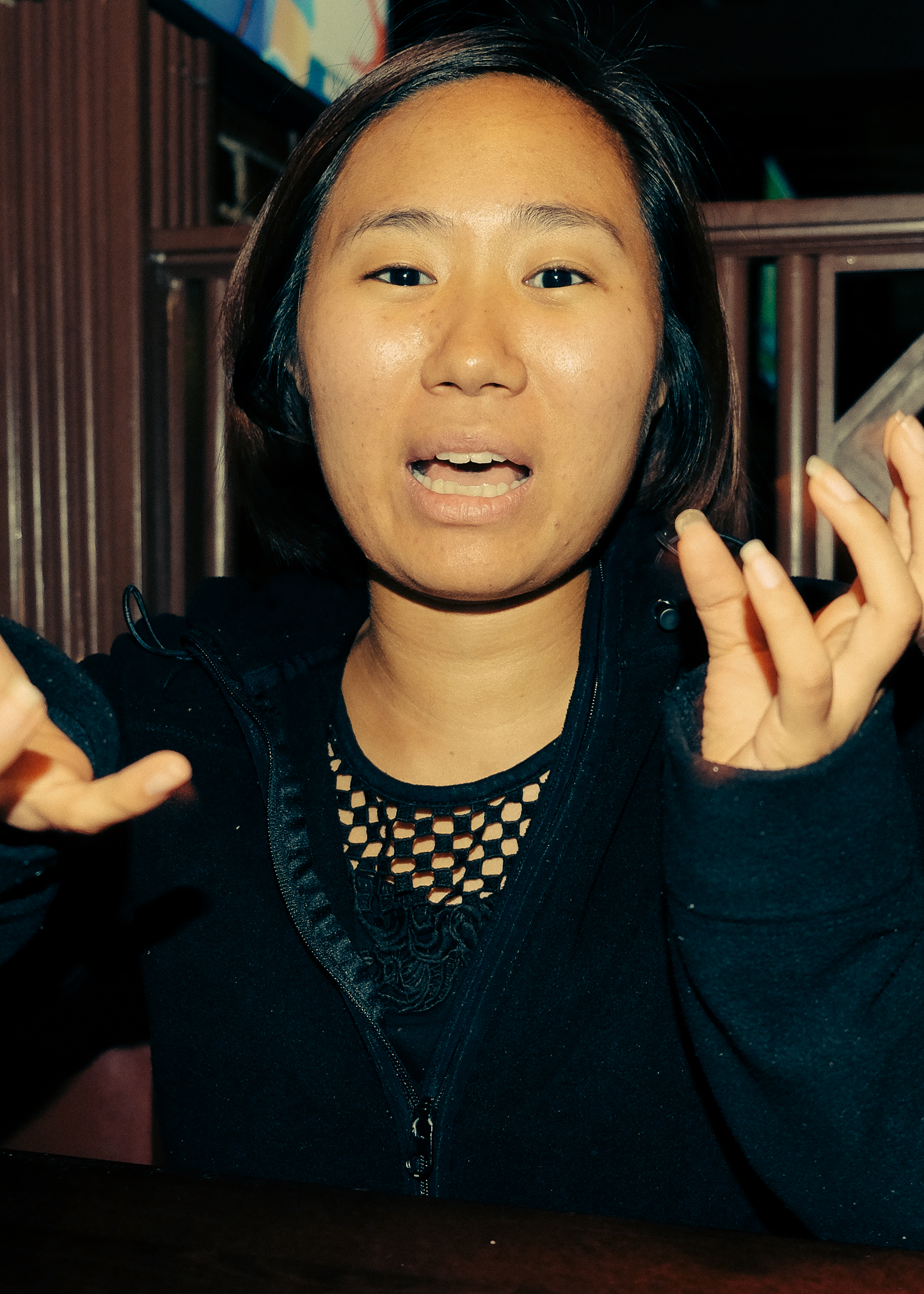Eliza has lived in Koreatown for over 15 years. I met her when she was assigned to be my mentee when she was a senior at Marshall High School in Silverlake. We’ve kept in touch over the years. She studied Visual Arts at UCSD and is currently working at MBC America. -KYK
Where is your hometown?
I was born at Good Samaritan Hospital in Los Angeles. I’ve lived in Koreatown since I was nine and I’m 24 now. I consider Koreatown home. I didn’t really realize this until I graduated from college. I told my mother that I would live with her in Korea because I was willing to leave Los Angeles, but then I realized I couldn’t. Everyone I loved was here. Everything I was accustomed to—places I’ve been going to, and where I feel most comfortable—is here in K-Town.
Do you live or work in Koreatown?
I work in the control room on 6th and Catalina at MBC America. And I live here. I’ve lived on the border of Arlington Heights and Koreatown for four years. We’re being gentrified. All these white people from Beverly Hills are moving in because their rent has skyrocketed. I don’t mind, but when the white people move in, the rent goes up. I see gentrification, but it’s so recent. It’s only the past 2 to 3 years and I’ve lived here for 15 years.
In the past, I’ve worked at a café making shaved ice and cutting fruit. I also worked at Mr. Pizza.
What are your thoughts on Koreatown today?
Koreatown is more like a medium-sized city. Everything is mediocre. They pay you a dollar more than minimum wage. That’s what my dad says, “Enough to live on, but not enough to complain about. You don’t get the food stamps, but you are getting the reduced lunch!” He’s a locksmith.
Let’s be honest. People are not nice here. Koreans or Korean Americans are not known for their smiles or their gentleness or their ability to assimilate into this culture. We are more about sticking with each other, or making business with one another. But it’s nice to be here. There are times when you hate it, like any other city, because it doesn’t really change. Yes, it changes over time but when you’re in it, it doesn’t change. There might be new owners, new ideas, new businesses, but it’s the same amount of income, same socioeconomic class.
You have the same group of friends, who are PK, which is short for pastor’s kids. If you want to get married, you go to Glory Church of Jesus Christ or Onnuri Church—the big ones. Everyone is in the same bubble. I have a friend who went to Harvard and she’s working at a hagwon. I mean, she’s not going to work at Wall Street, let’s be real. She worked hard to get into Harvard, but we had the same first job out of college, because we are from the same social class in Koreatown. We’re both Christian, under single parents.
I went to JB for middle school, which is invaded by Korean moms, who say “It’s a magnet program! We must enlist our Korean children!” It’s all Korean, so you don’t have to be careful about bringing your doshirak. Most of the kids are on lunch tickets. A lot of them are undocumented. Their parents work at least 10 hours a day—most of them are waiters/waitresses, pool cleaners, plumbers, sushi chefs. After school, we would go to the noraebang at Vermont and Third. We sang out hearts out.
Koreatown is also full of sajikoon—scammers who are bankrupt and come here from Korea to run from bounty hunters or loan sharks. My dad got tricked into paying $30,000, thinking he was going to marry a beautiful 35-year-old. My dad bumped into the pastor who introduced them, at Carl’s Jr. on 5th Street and he just kneeled down and said, “Sorry, I already lost the money gambling.”
Where is your favorite place in Koreatown?
Maga Church on Beverly and Rampart. It attracts everyone—brings in all kinds of people. I volunteer there and I’m in their theatre group. They fundraise and the ticket sales go towards building a seminary in California state prisons. It’s for a good cause.
